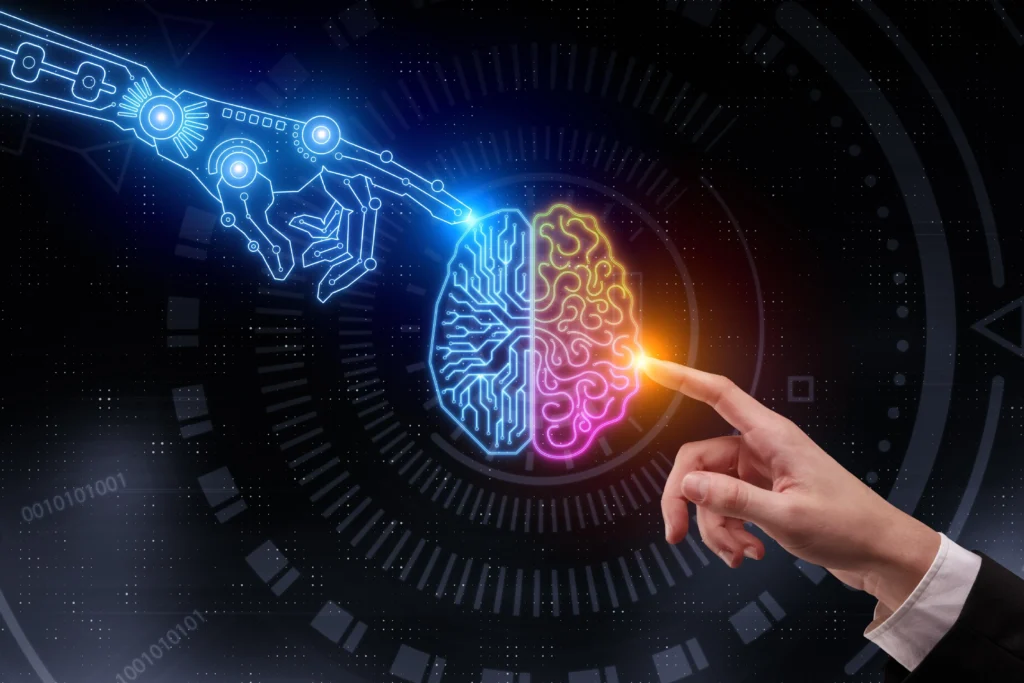Artificial Intelligence (AI) has advanced significantly in the last decade and has introduced advanced methods that are changing industries and redefining how people communicate with tech. The incorporation of AI across various industries has opened the door to breakthrough efficiency as well as intelligent automation and creative approaches to problem solving. Understanding how current AI methods work and why they are so important is crucial for anyone trying to understand the effects of artificial intelligence on our society.
Understanding the Fundamentals of Modern AI Techniques
Modern AI techniques cover a broad range of methods that allow machines to mimic human intelligence. These methods employ complex algorithmic systems, neural networks as well as machine-learning models, to analyze data, detect patterns and predict. The core of these developments is data engineering which plays an essential function in preparing, managing and organising data to support AI applications. Data engineering that is effective ensures that AI models have access to quality. Well-structured datasets that provide precise and reliable outcomes.
Deep learning is among the most popular AI techniques that employ artificial neural networks to replicate the human brain’s ability process information. Convolutional neural network (CNNs) and Recurrent neural networks (RNNs) are extensively used to recognize images as well as natural language processing and analysis of speech. Reinforcement learning, a different key method, allows AI machines to gain knowledge from trials and errors and improve their decision-making capabilities as time passes.
The Role of AI-Generated Content in Modern AI
AI-generated content is becoming increasingly commonplace, changing how information is produced and distributed. The use of natural process of language (NLP) methods like transformer-based models can allow AI to produce text that is human-like that allows you to create reports, articles or even writing that is creative. AI-generated content is especially useful in the fields of journalism, marketing and customer service where automatic responses and personal interactions improve user experience.
The technological advances in AI-generated content pose questions regarding authenticity, authenticity as well as ethical concerns. Making sure that the AI-generated content is original and free of plagiarism requires sophisticated algorithms that are able to examine and confirm the authenticity of the content. Furthermore ethical AI methods must followed to ensure that there is no bias or misinformation in the content that is generated.
Applications of Modern AI Techniques Across Industries
The impact of modern AI techniques felt across many sectors, creating the development of new technologies and efficiencies. In the field of healthcare AI-powered diagnostics, AI-powered devices employ algorithms that use deep learning in order to recognize illnesses and suggest treatments with a high degree of precision. AI-driven drug discovery speed up creation of novel medicines through the analysis of huge quantities of biological data.
In the field of finance, AI algorithms enhance fraud detection by identifying unusual transactions patterns. Automated trading systems use machine learning to forecast market trends and improve investment strategies. The use of AI in banking can also speed up customer interactions via chatbots and virtual assistants that offer immediate customer support.
The automotive industry has seen significant progress in the field of artificial intelligence-driven vehicles. Computer vision technologies allow autonomous cars to sense their surroundings and safely navigate. AI-powered predictive maintenance helps ensure the long-term durability of vehicles through analysing sensor data to identify the possibility of mechanical failures prior to they occur.
The retail and e-commerce industries benefit from AI techniques for individualized recommendations in inventory management, as well as innovative pricing methods. AI-driven analytics aid businesses in understanding the habits of their customers and adapt their marketing strategies to suit. Furthermore, AI-generated content can enhance description of the product, user reviews and other promotional materials.
Challenges and Ethical Considerations in Modern AI
Despite the revolutionary potential of the latest AI techniques, there are numerous issues and ethical concerns have to be taken into consideration. Privacy concerns for data arise because AI systems. It require huge quantities of sensitive and personal information in order to function properly. Also, making sure that data is secure and in conformity with regulations is essential in ensuring trust for users.
Incorrectness within AI algorithms is a further crucial issue, since biased training data could cause discriminatory results. Transparency and fairness in AI models should be a top priority to avoid creating social inequalities. Ethics-based AI methods involve constant monitoring and testing of models to ensure they are in line with ethical standards.
The increasing popularity of AI-generated content has raised questions about intellectual rights in property and the legitimacy in digital media. Since AI continues to produce realistic videos, images and texts, discerning between AI-generated and human-created content is becoming increasingly difficult. Utilizing watermarking methods and digital signatures could help confirm the source for AI-generated material.
The Future of Modern AI Techniques
The future of the latest AI techniques is incredibly exciting as continuous advancements pushing limits in artificial intelligence. Quantum computing advances are expected to improve AI capabilities, which will allow for quicker processing speeds and more advanced ways of solving problems. AI-driven creativity will continue develop, resulting in new ways of creating digital music, art and literature.
Collaboration across disciplines among AI research. Politicians and leaders from the industry will play a crucial role in developing the ethical and legal framework of AI. Responsible use of AI technologies will ensure they are beneficial to society, while minimizing the risks and negative consequences. Awareness and education initiatives are also playing a crucial role in preparing workers for an AI-driven world.
Advanced AI techniques are changing the technological landscape, giving unimaginable possibilities for efficiency and innovation. For everything from reinforcement and deep learning, to artificially generated content as well as data engineering advances have shaped industries and are changing our lives. While ethical and legal issues remain, the continuous development of AI promises a future. Where intelligent systems can contribute to an efficient, educated and connected world.


